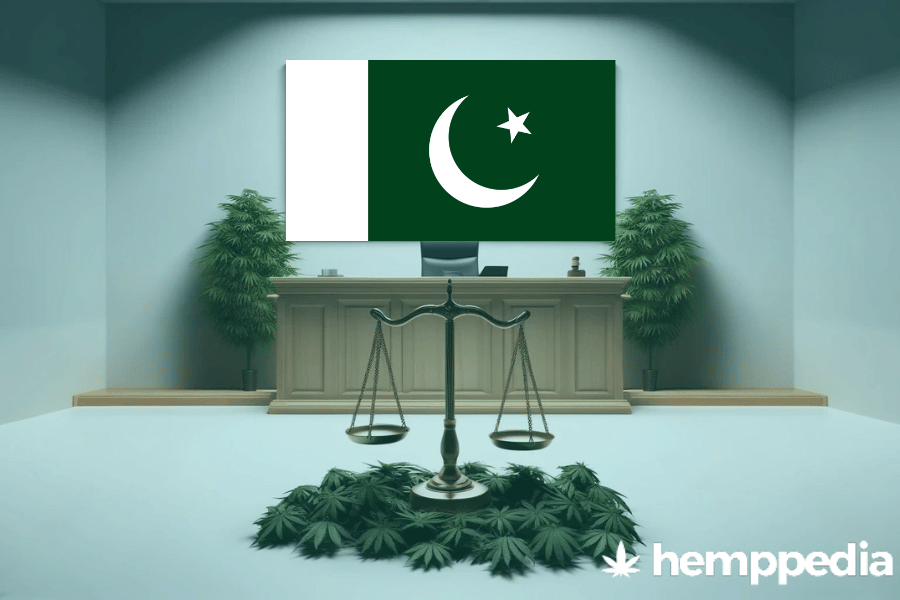A comprehensive look at the legal status of cannabis in Pakistan, examining the details of its medical and recreational use, cultivation and distribution, enforcement and penalties, and its social and economic impact. This blog post reviews the present state of cannabis law in Pakistan, its historical context, and a comparative analysis to similar regions. It also explores the future outlook and ongoing debates surrounding cannabis law, considering public opinion and activism related to cannabis laws.
| Recreational Use | Medical Use | |
|---|---|---|
| THC | Illegal | Illegal |
| CBD | Illegal | Illegal |
Introduction
Cannabis law, which governs the usage, sale, and cultivation of cannabis, differs greatly across various countries. Understanding the legal status of cannabis is important given the global trend towards legalization and decriminalization, and how these changes have the potential to impact society.
Overview of Cannabis Legislation
With different nations taking different stands on cannabis, legalization, decriminalization, medical use, and recreational use are terms we often encounter. Medical use pertains to the use of cannabis, with a doctor’s prescription, to treat health conditions. Recreational use means the use of cannabis for personal enjoyment rather than for health reasons. Legalization means making cannabis legal and regulated, while decriminalization involves removing criminal penalties, though the substance remains illegal.
Legal Status of Cannabis in Pakistan
In Pakistan, cannabis in all forms, including those with the psychoactive substance THC and the non-psychoactive substance CBD, is illegal. Whether for recreational or medicinal use, the possession, sale, cultivation, and transportation of cannabis are all prohibited under the Control of Narcotics Substance Act, 1997.
Historical Context
Despite cannabis being entrenched in Pakistani culture for centuries, the government outlawed it under the pressure of global anti-narcotics efforts, making it illegal in all its forms.
Possession and Use
Anyone caught possessing, using, or transporting cannabis, regardless of the quantity, can be charged under the law. The use of cannabis is illegal in all neighborhoods, including private residences and clubs. The legal age for the consumption of any narcotics, including cannabis, is strictly enforced and is set at 18 years.
Cultivation and Distribution
Cultivating cannabis for personal or commercial use is strictly prohibited. Those found guilty of cultivation could face hefty fines or imprisonment. There are no legal methods for the distribution of cannabis.
Enforcement and Penalties
The penalties for violating cannabis laws in Pakistan are severe, with imprisonment varying from 2 years to life, depending on the crime’s gravity.
Medical Cannabis
Despite interest in the potential benefits of using cannabis for medical purposes, medical cannabis remains illegal in Pakistan.
Social and Economic Impact
The prohibition of cannabis continues to fuel a black market, leading to an increase in drug-related crimes. The economy also misses out on potential tax revenue from the regulated sale of cannabis.
Comparative Analysis
Unlike some western countries such as Canada, where cannabis has been fully legalized, Pakistan maintains a strict prohibition policy. However, like Pakistan, several other Asian countries have harsh laws against cannabis.
Future Outlook and Ongoing Debates
There’s an ongoing debate over the legalization of cannabis, with activists arguing for medical and industrial uses of cannabis, while others fear its potential misuse.
Conclusion
Cannabis remains strictly prohibited in Pakistan, both for recreational and medicinal use. However, as global perception towards cannabis continues to evolve, it remains to be seen whether Pakistan will revise its laws in the future. The discussion surrounding the legalization and decriminalization of cannabis is far from over and warrants a continued examination of its potential societal, economic, and health impacts.





